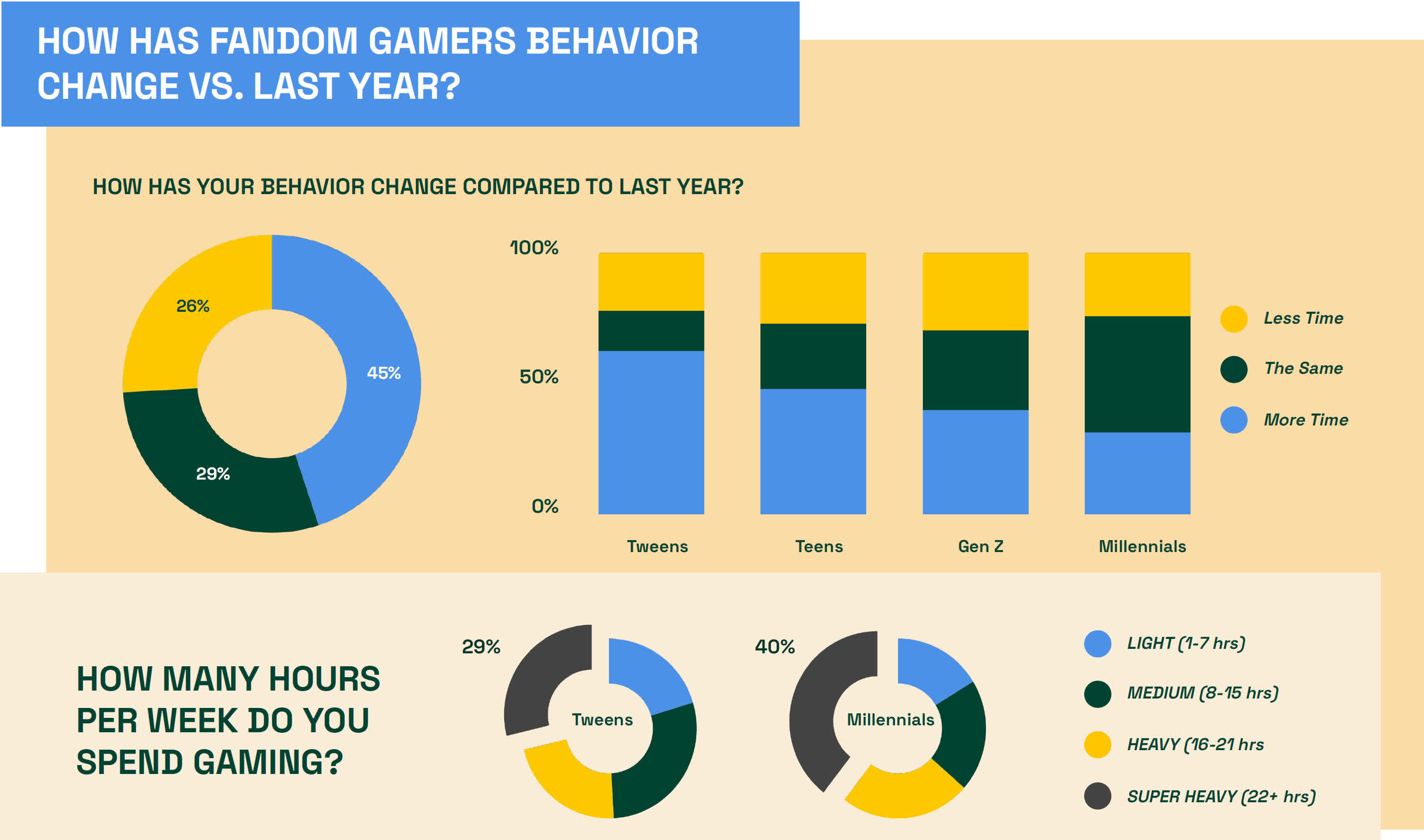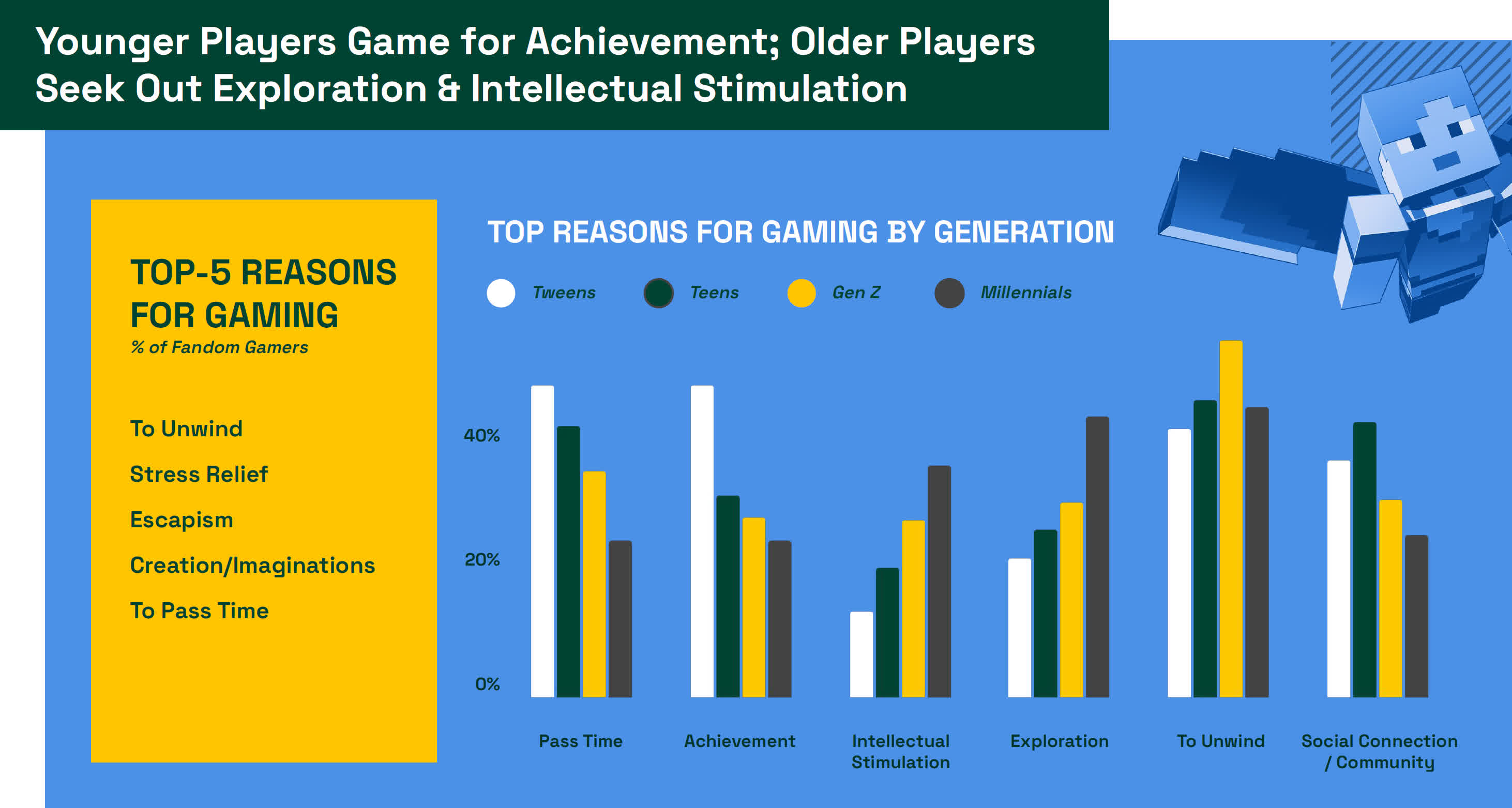In brief: Engagement with video games has increased across every major demographic, platform and genre over the past five years according to Fandom's 2023 Inside Gaming Report. The survey further noted that millennials are spending more time gaming per week than younger age groups.
Two out of five millennials surveyed said they spend 22 hours or more gaming per week, compared to just 29 percent of tweens. Millennials also tend to favor the PC over other gaming platforms like consoles while younger generations gravitate more toward mobile gaming, likely due to the associated cost of entry.
Interest in a particular title also plays out among age groups as you might expect. Younger gamers report being more influenced by streamers and hype than their older counterparts. Millennials, meanwhile, tend to buy into games that offer good character development and strong storylines.
Why play games at all? According to younger players, they like the thrill of chasing achievements and view games as a way to pass the time. Older audiences enjoy the intellectual stimulation and exploration aspects that some titles bring to the table.
Gaming has also evolved into a way for parents to bond with their children. Among those surveyed, 56 percent of parents said gaming is a fun activity to do together and 41 percent expressed interest in passing down their fandom to their offspring. A third of parents said they believe co-gaming helps to establish teamwork and collaboration skills, one in four said it fosters leadership skills, and 26 percent feel co-gaming teaches important life lessons.
Did you play games with your parents, or do you play games with your children now? I can recall my mom occasionally picking up an NES controller for a few runs in Super Mario Bros. and laying down some decent scores in Tetris on the Game Boy but it was never really a co-gaming thing. Video games for me, at least back then, were largely for the amusement of me and my friends.


